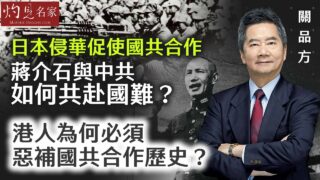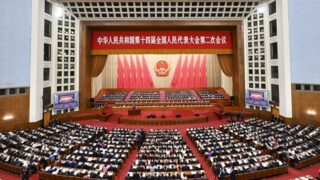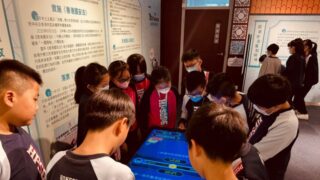中共中央辦公廳9月15日印發了《關於加強新時代民營經濟統戰工作的意見》(下簡稱《意見》)的文件,其內容和實施,對內地和在內地經營的港澳企業同樣有政治和經濟上的重要意義。
《意見》強調,中國的特色社會主義正在進入「新時代」,「民營經濟規模不斷擴大、風險挑戰明顯增多」。 民營經濟人士的價值觀念和利益訴求日趨多樣。 為了貫徹中共的「重大決策部署」,有必要「加強黨對民營經濟統戰工作的領導, 更好把民營經濟人士的智慧和力量凝聚到實現中華民族偉大復興的目標上來。」
《意見》又強調,「民營經濟人士作為我們自己人,始終是我們黨長期執政必須團結和依靠的重要力量」。「推動新時代民營經濟統戰工作創新發展,有利於不斷增強黨對民營經濟的領導力,把廣大民營經濟人士更加緊密地團結在黨的周圍,凝聚起同心共築中國夢的磅礡力量」。
《意見》具有深刻的政經意義。政治上,所有民營經濟都在中共的統籌之下,以便企業家都能夠遵守黨的指示和政策,可以充分動員以實現黨和國家的目標,包括「一帶一路」、扶貧和慈善工作。
意識形態方面,黨可以更深入地滲透到所有民營經濟,包括在內地的港澳民營企業。
經濟上,中國經濟的「雙循環」也取決於民營企業的活力和生命力,這將在戰略產業的發展中發揮至關重要的作用,包括鐵路、電力、能源和高科技基建的發展。
總之,《意見》不僅釋放了龐大的人才潛力和迅速增長的民營經濟的巨大潛力,而且還將成為中國公營機構改革的轉捩點。有利中共在可見的未來實現「中國夢」和「民族復興」的願景。
China’s New United Front Work on Private Enterprises: A Turning Point
A document published by the Central Office of the Chinese Communist Party (CCP) on “the decision of the necessity to enhance the economic united front work on private enterprises during the new era” on September 15 is politically and economically significant in its content and implementation in China, with implications for the Macau and Hong Kong enterprises in the mainland.
First, the decision emphasizes that China’s socialism is entering “a new era” during which private economic enterprises are “continuously growing with increased risks and challenges.” Moreover, the concerned personnel of private enterprises are “increasingly diversified in values, thinking, interests and demands.” To implement the CCP’s “major strategic decisions,” there is a necessity of strengthening the leadership of the Party in the economic united front work on private enterprises. In this way, their “wisdom and strength” can achieve “cohesion” and realize the objective of “the renaissance of the Chinese nation.”
The decision stresses that the personnel and staff of private enterprises “belong to our own people on which the Party must rely, unite and realize their development.” Private enterprises must be brought into the Party’s umbrella of “maintaining and perfecting Chinese socialism, consolidating and developing public ownership of the economy, and resolutely encouraging, supporting and leading the growth of the non-publicly owned economy.” Private enterprises can safeguard “quality development” of the economy and deepen the process of structural reforms. As such, the entrepreneurs of private enterprises should be “upgraded in their overall quality and enhanced in their creativity.”
Second, private enterprises must follow the Party in the “struggle” of realizing “the Chinese dream,” maintaining “the construction of a harmonious and clear government-business relationship,” improving the business environment, and promoting “a good political ecology” in the aspects of “trusts, solidarity, service, guidance and education.” Clearly, all private enterprises are expected and required to serve the Party-state in the realization of the political goal and “consensus” of achieving “socialism with Chinese characteristics.”
Third, the decision emphasizes the importance of “constructing the political thinking of private enterprises personnel” by guiding them educatively on the need to adhere to the Party’s “political positions, directions, principles and paths.” Private enterprises must become “a model of promoting the Party’s organization, the fighting castle and the vanguard role of the Party members.” Here, private enterprises must expand their role in anti-poverty work and education. Most significantly, “personnel of private enterprises must enhance their identity with the CCP and political, ideological and motional identification with Chinese socialism.” They should be subjectively mobilized to enhance their “self-learning, self-education and self-upgrading.” The implications are that they should have “correct national thinking and views on the rule of law, profession and wealth,” and that they should be “patriotic, abide by the law in management and innovation,” and make returns to the society. They should be “pragmatic,” “humble,” “trustworthy,” “credible.” “moral” and contributory in anti-poverty and charity work while rejecting hedonism.
Fourth, the quality of private enterprises personnel must achieve “excellence,” including the investors, the major stakeholders of the stocks concerned, the “big shareholders,” the economic leaders of industrial and commercial enterprises, the persons and partners in charge of social services organizations, and the industrial and commercial representatives of Hong Kong and Macau who have investment in the mainland. All these enterprises, ranging from small to big ones, must improve their “election mechanism, build up their talents database and promote the functions of united front work.” These talents can and will become a pool of resources in the development of new, strategic, high tech, advanced and serving enterprises. As such, the Party schools at the local levels will pay more attention on the education and training of private enterprises personnel and will develop party membership in enterprises.
All those units without party organization will have to undergo the process of “nurturing members of party organizations at the level of county and above.” Pilot plans will be conducted on the selection of entrepreneurs of private enterprises as the chairpersons of industrial and commercial federations at the provincial level, including the selection of the members of the recruitment work under the Standing Committee of the Chinese People’s Political Consultative Conference (CPPCC). The older generation of entrepreneurs will take the leadership in planning for the succession of the younger generation.
Fifth, the quality development of private enterprises embraces the need for the government to set up various platforms for them to undergo technological innovation, conduct risks assessment, prevent monetary and financial crises, and participate in the Belt and Road initiatives. Moreover, private enterprises are encouraged to participate in “mixed ownership reforms” and to explore the process of building up China’s “modern enterprises system.”
Sixth, a communicative and consultative mechanism of government-business relationship is going to be established through the need to revisit and revise existing enterprise law and regulations, to strengthen deliberative consultations between local party secretaries and government leaders on the one hand and private entrepreneurs on the other hand, and to mobilize united front departments and industrial and commercial federations to tap the views of private enterprises at the levels of towns, villages and neighbourhoods. At the same time, private enterprises reflect their views and protect their rights to the authorities concerned so that civil and commercial disputes can be arbitrated, mediated, and solved timely.
Seventh and finally, the functions of industrial and commercial federations must be unleashed more effectively by integrating the role and participation of private entrepreneurs. Private enterprises can contribute to the processes of improving the people’s livelihood, social governance, and democratic supervision. The party organizations of various industrial and commercial federations must enhance their united front work on private enterprises, which can in turn help improve the delivery of public services. Those “social groups that are not registered must not operate” and private entrepreneurs should be better organized and managed through forums, seminars, and lectures.
The decision document is politically and economically significant. Politically, all private enterprises are under the new united front work of the CCP so that their entrepreneurs and staff members can and will adhere to the Party’s direction and policies. They can and will be fully mobilized to achieve the Party-state’s objectives, including the Belt and Road initiative, anti-poverty and charity work, the co-optation of new leaders into the CPPCC, the rejuvenation of the leaders of various industrial and commercial federations, the revival of the Maoist mass line between Party cadres at all levels and private entrepreneurs, the consolidation of the legitimacy of the CCP at all levels of the society, and the better utilization of the talents, knowledge and capital of private enterprises in the realization of “the Chinese renaissance.” A Leninist approach to integrating private enterprises into the Party state is therefore adopted.
Ideologically, the Party can penetrate deeper into all private enterprises, including those led by Hong Kong and Macau businesspeople in the mainland, and those mainland enterprises that showed various levels of capability. Strong enterprises are controlled in a better way, while weaker enterprises can be assisted by the Party state. In terms of socio-political control, the Party can and will stabilize the entire society through its deeper penetration into private enterprises and broader absorption of entrepreneurs and talents. Private enterprises will become indispensable in the process of building up a “mixed” economic sector where state-owned enterprises have to be revived through mergers and ownership transfers with “private” enterprises, and through inter-organizational reshuffle of leadership by staffing state-owned enterprises with successful “private” entrepreneurs.
Economically, the Party’s “dual circulation” of China’s economy also depends on the energies and vitality of private enterprises, which will play a crucial role in the development of strategic industries, including railway, electricity, energy and high tech infrastructure development as revealed by Premier Li Keqiang in a standing committee meeting of the State Council on September 17. In other words, the new united front work on private enterprises can stimulate the reforms of state-owned sectors. Private enterprises can and will also gain more state support in their quest for loans and financing, thereby promoting “internal circulation” of capital, talents, and resources between private and public sectors. Gradually, private enterprises will likely become the new “transmission belts” of the CCP, playing a critical role in rejuvenating state-owned enterprises, participating in the consolidation of strategic industries, gaining better Party-state protection, and achieving a “win-win” situation for a new triple alliance between the Party-state, state-owned enterprises and private enterprises.
Socially, by educating the personnel of private enterprises, their personnel and leaders will be expected to rejuvenate the CCP, revitalize the industrial and commercial federations, and re-indoctrinated with Party principles and ideology so that the entire society of China can and will be stabilized. As Covid-19 is under control in many parts of the mainland, private enterprises are expected to sustain and provide employment and stabilize the society. After all, many personnel of private enterprises belong to the new middle class, whose social cohesion and political support are critical to the longevity of the Party.
In short, the decision document represents a turning point in China’s quest for the reforms of both private and public sectors by not only unleashing the full potentials of the massive talents and tremendous capability of the rapidly growin private enterprises, but also utilizing them as the new transmission belts in the CCP’s vision of achieving the “Chinese dream” and “Chinese renaissance” in the coming years.
原刊於澳門新聞通訊社(MNA)網站,本社獲作者授權轉載。














































